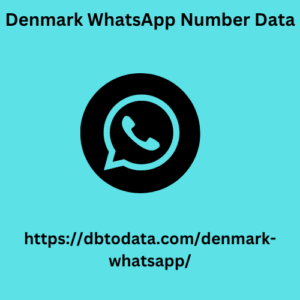Because ecommerce landing pages are separate from your website, you can often build and launch them faster—especially when you’re working with an ecommerce landing page builder. Deliver clearer messaging. When somebody clicks on your ad or email, you’ve set certain expectations in the messaging (by talking about a particular product benefit or discount). If a visitor lands on a generic product page that doesn’t have the same messaging, they’re less likely to make a purchase. Ecommerce landing pages can be customized for every campaign, ensuring perfect message match and a more consistent buyer journey.
Target specific audiences. Some customers care about Denmark WhatsApp Number Data Benefit X—others are only interested in Benefit Y. Your product page can’t emphasize the most important information for each audience, but ecom landing pages can. Create targeted ads for each audience, then send them to the custom landing page that’s specifically designed to address their needs. Provide a better experience. There’s nothing worse than clicking on an ad for a particular promotion, then ending up someplace that says absolutely nothing about it.

Because landing pages are usually paired with matching ads or emails and their messaging is consistent with one specific offer, visitors get a more seamless experience from first click to checkout. Landing pages vs product pages: Which one should you use? can lead to some pretty underwhelming results. According to Monetate, visitors convert half as often when they’re on a product page compared to a custom landing page experience. That’s because most product pages don’t follow ecommerce best practices, let alone the larger online shopping trends shaping consumers’ expectations.
| 